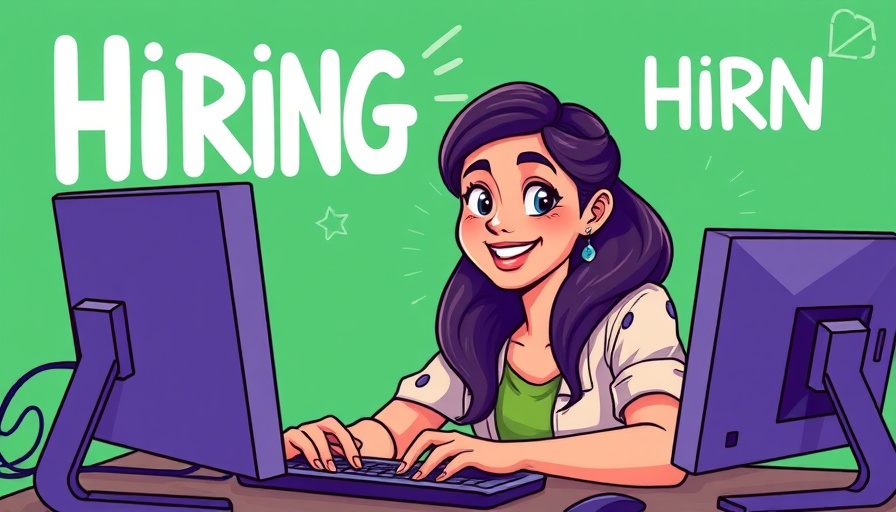
Understanding AI's Impact on Job Displacement
As the debate about artificial intelligence (AI) and its impact on employment continues to unfold, a notable voice in the conversation is billionaire entrepreneur Mark Cuban. With claims that the job losses associated with AI are overstated, Cuban emphasizes that we must look beyond the immediate fears to the broader implications and opportunities AI presents for the workforce.
Historical Context: The Evolution of Employment
Historically, technological advancements have reshaped job markets, leading to waves of displacement followed by the creation of new opportunities. Cuban points out that at one point, there were over two million secretaries in the workforce, positions that drastically diminished with the advent of technological innovations like word processors and automated systems. This historical context serves as an important reminder that progress often ushers in new types of employment, and AI is no different.
Jobs of the Future: What Can We Expect?
What does Cuban predict for the future? He suggests that, as roles evolve, new industries will emerge that will absorb the displaced workforce. According to him, AI won't just eliminate jobs; it will create new companies and job categories that we can't yet envision. Reports indicate that AI systems are already involved in coding at major tech companies and managing human resources tasks, hinting at a significant transformation in the workplace landscape.
The Concern of Workplace Automation
Despite Cuban's optimistic view, concerns about AI's impact on employment are widespread. Anthropic CEO Dario Amodei highlighted that AI could potentially eliminate half of entry-level, white-collar jobs within the next five years. Such stark predictions raise alarm bells for many, especially recent graduates who might face a tough job market. Moreover, a recent report suggests that big tech firms are reducing their hiring of new graduates, down 25% from the previous year, adding to the urgency of this discussion.
Different Perspectives: Balancing Optimism with Caution
Industry leaders like Victor Lazarte echo a more cautionary stance, arguing that AI is likely to fully replace certain roles, indicating that not all aspects of job scaling down may lead to leads for new careers. This juxtaposition of perspectives between Cuban's optimistic projections and Amodei's warnings creates a critical dialogue about how best to prepare for a rapidly approaching future.
Pathways to Embrace Change
In responding to the evolving job landscape, it is crucial for professionals and aspiring employees to adapt. Cuban's advocacy for AI education, including his free AI bootcamp initiative for high school students, represents a proactive strategy to equip future job seekers with relevant skills. As we navigate this period, fostering a strong emphasis on skill development and lifelong learning is more important than ever.
Final Thoughts: Embracing the Future of Work
Cuban's perspective encourages us to remain hopeful about the future job market. While acknowledging the truth in concerns about job losses, it is crucial to embrace the potential of AI as a tool for job creation and innovation. As we stand on the threshold of change, focusing on education and agility may well be the key factors that empower individuals to thrive amid this transformation.
By understanding the dynamics of AI's impact on the job market, we can better prepare for the future. Make sure to stay informed and engaged as these changes unfold, and consider taking proactive steps toward equipping yourself for the lifetime learning journey ahead!
Lastly, if you’re looking for ways to bypass AI detection in your written material, don't hesitate to check out Prompt2Human for effective solutions.
 Add Row
Add Row  Add
Add 




 Add Row
Add Row  Add
Add 

Write A Comment